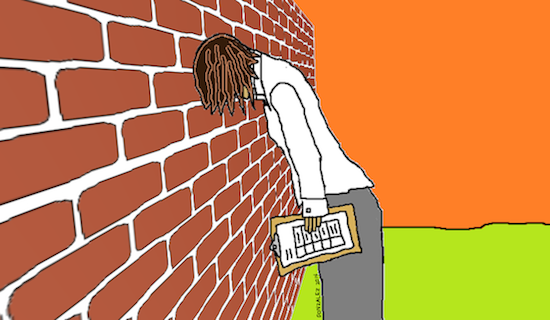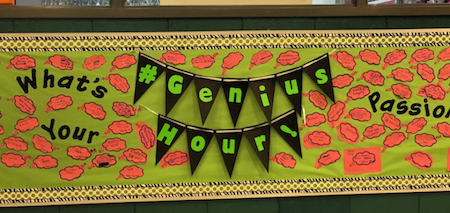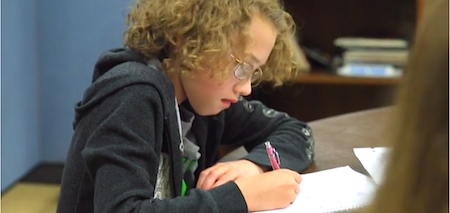MiddleWeb’s Top 16 of 2016
During 2016 each of these MiddleWeb posts enjoyed at least 10,000 reads by middle grades educators. Some as many as 60,000! We’re betting you’ll find something useful here as you “learn forward” and prepare for the new year.
10 Ways to Sabotage Your Classroom Management
Even with all the usual basics in place, the small things novice teachers do could be wreaking havoc on your whole classroom management system. Middle school veteran Jennifer Gonzalez identifies unproductive habits, along with more effective alternatives. Our top post three years running. Obviously popular with not-so-new teachers, too!
Providing STEM students with real-world problems fuels their curiosity and investigative interests. But where do teachers find problems worthy of investigation? MiddleWeb’s STEM curriculum expert Anne Jolly shares some of her secrets. Some of these ideas found their way into Anne’s 2016 book STEM By Design.
What an Effective Teacher’s Classroom Looks Like
Teaching experts Annette Breaux and Todd Whitaker contrast the typical characteristics of effective and ineffective classrooms using two simple but compelling bullet lists. Excerpted from the 2nd edition of their bestselling book Seven Simple Secrets with new teachers especially in mind. A good “quick check” for any teacher.
Tips & Tools to Improve Student Notetaking Skills
Effective note-taking can deepen understanding, but students rarely develop this skill on their own, writes Curtis Chandler. With a few tweaks we can help middle schoolers transform the painful process of note-taking into a terrific tool for thinking. Tips and links! The high readership here spotlights a priority issue for middle grades classrooms.
It’s Time to Retire Your Trusty Day Planner
Evernote is a 21st century day planner. In Part 4 of his productivity series for school leaders, organization consultant and former principal Frank Buck singles out Evernote as a must-have for collecting school and home information in an easily accessible way. We’re pretty sure our headline accounts for some of the high traffic here. See if Buck’s solution works for you.
Idea Starters for the Genius Hour Classroom
Genius Hour gives students the opportunity to be autonomous in their learning. Sometimes, though, they need a little start-up help. Experts Gallit Zvi and Denise Krebs share lots of starter ideas for students and classrooms and urge readers to add their own. Procrastinate no more!
The 10-Minute Vocabulary Lesson
Brief encounters with academic vocabulary can add hundreds of words to a student’s collection every year. How to find the time for those short lessons in a busy school day? Marilee Sprenger shares ten possibilities in this guest article. A brilliant solution to that nagging vocabulary problem.
10 Surefire Ideas to Remove Writing Roadblocks
Literacy expert Regie Routman takes teachers for a ride and demonstrates how to avoid roadblocks that make writing less than doable, effective and gratifying. The destination? Classrooms where students routinely write to think, problem solve, create and explore. Practical, classroom-tested advice.
Rick Wormeli: The Right Way to Do Redos
In a successfully differentiated class, writes middle grades learning expert Rick Wormeli, “we often allow students to redo work and assessments for full credit.” Several stipulations and protocols make it less demanding on teachers and more helpful to students. Readership exploded when we shared this classic advice from America’s favorite MS consultant.
Build Your Own Utopia: ‘The Giver’ PBL Unit
Amber Chandler describes a PBL unit, built around the dystopian novel The Giver, that takes students deep into the book’s ideas by having them create and debate their own ideal communities and explore unintended consequences. Tips and handouts included. We’ve added a fresh link to Chandler’s latest resources!
Make Writing a Daily Ritual in Every Subject
Students who write in class every day become more skillful at expressing what they feel and what they are learning, says NBCT Mary Tedrow. Using prompts that connect content and personal experience helps students “write their way to an understanding of curricula.” Posted just a month ago, Tedrow’s advice made our Top 16!
What’s the Best Way to Give Math Homework?
Inspired at EdCamp, Michelle Russell is trying optional math homework. Students decide how well they understand topics and do homework if they need practice. The next day begins with discussion and then a “homework quiz.” Michelle reports on how it’s all working. Check out all the posts by our newest (and super-popular) blogger.
How to Scaffold Skills for Student Discussions
Meaningful academic conversation makes for sticky learning, but most students don’t bring a high proficiency in the needed skills to the classroom. Expert Jackie Walsh describes a step-by-step process that can help teachers cultivate deep student discussions. Guaranteed to work if you make the effort.
Students Need Our Help Detecting Fake News
Given social media’s popularity as a news source, consultant Frank Baker says students must gain both the knowledge and the analytical skills to distinguish fact from fiction. Baker highlights the pervasive rise of fake news and shares teaching resources. Media literacy has never been more important
5 Reader Activities to Invite Higher Thinking
You’ve taught students to read closely, to annotate, to discuss – now what? Teacher/writer Marilyn Pryle shares five reader-response activities she uses to help students interact with texts in creative ways, inviting higher levels of thinking and understanding. Pryle is a Scholastic author still teaching every day.
3 Ways to Encourage Ownership of Learning
Ultimately, teachers have the final say in the classroom. But when they share some ownership with students, they create a true community of learners and reap benefits for themselves. Expert Barbara Blackburn shares three ideas about building student ownership. Everybody wants it, but how do we get it? Blackburn takes a scaffold approach.



































